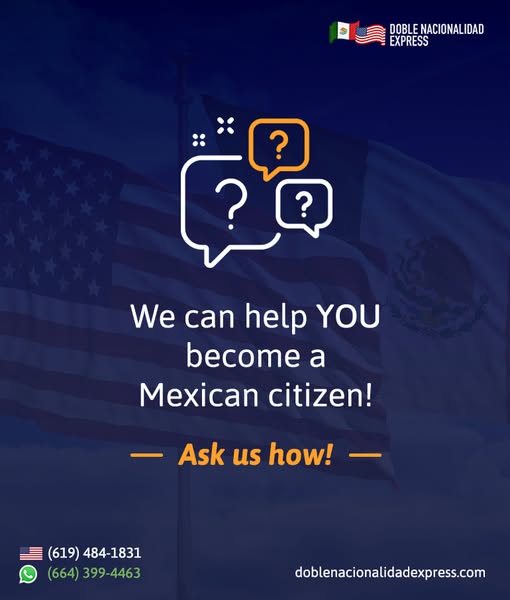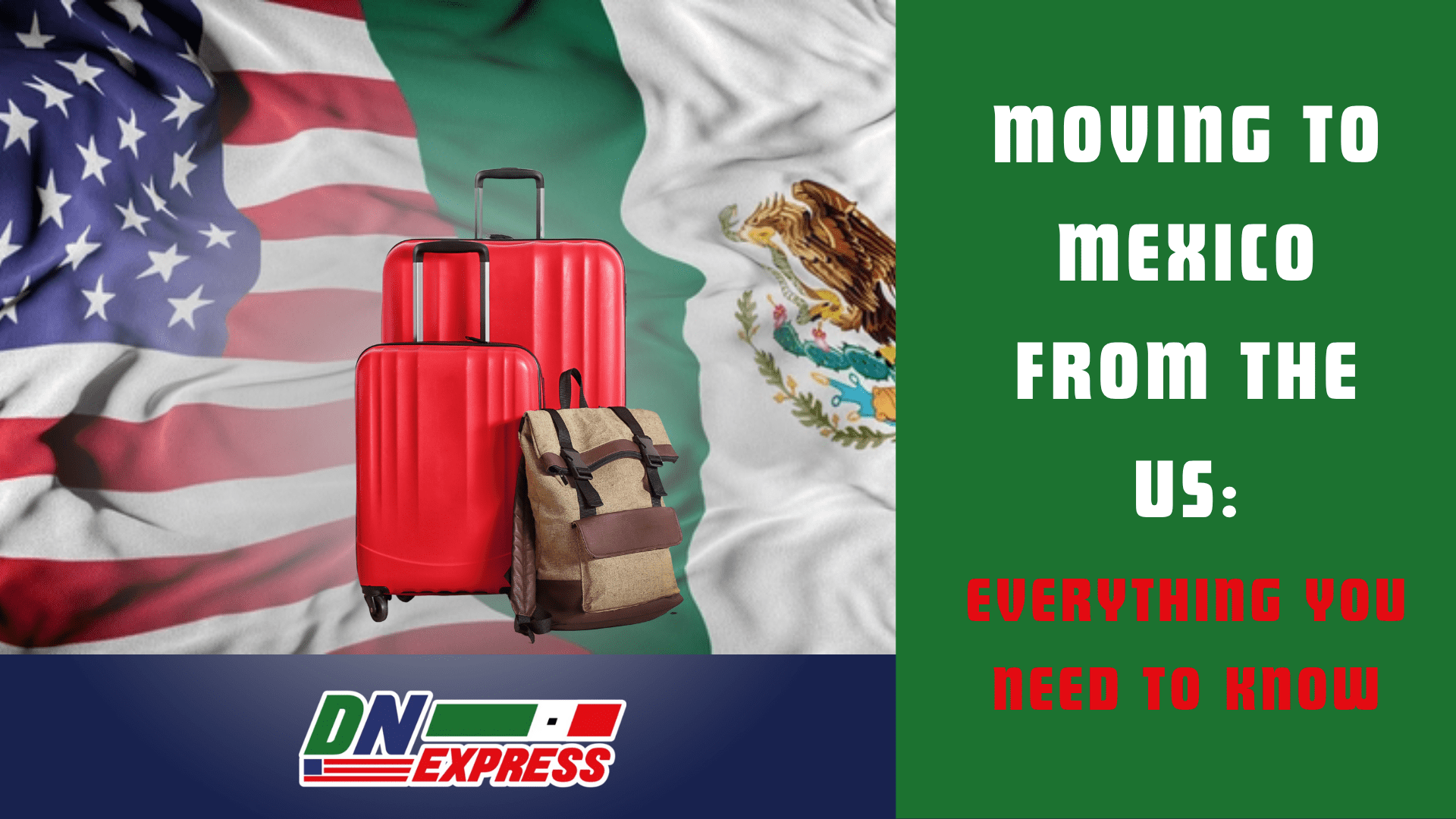
We know that moving to Mexico from the US involves complexity beyond packing your bags.
From visa options to cost of living and dual citizenship benefits, we’ll break down what Americans need to know to start a new life south of the border, with or without Mexican heritage.
Whether you’re retiring, reconnecting with your roots, or seeking a fresh start, moving to Mexico comes with unique opportunities, and a few challenges.
This guide covers everything from residency requirements and healthcare to cost of living and legal pathways for U.S.-born Mexicans.
We help families and individuals secure dual citizenship, fix documentation issues, and navigate Mexico’s legal system, all without visiting a consulate.
Want the full breakdown?
Keep reading to learn how to make your move smooth, legal, and stress-free.
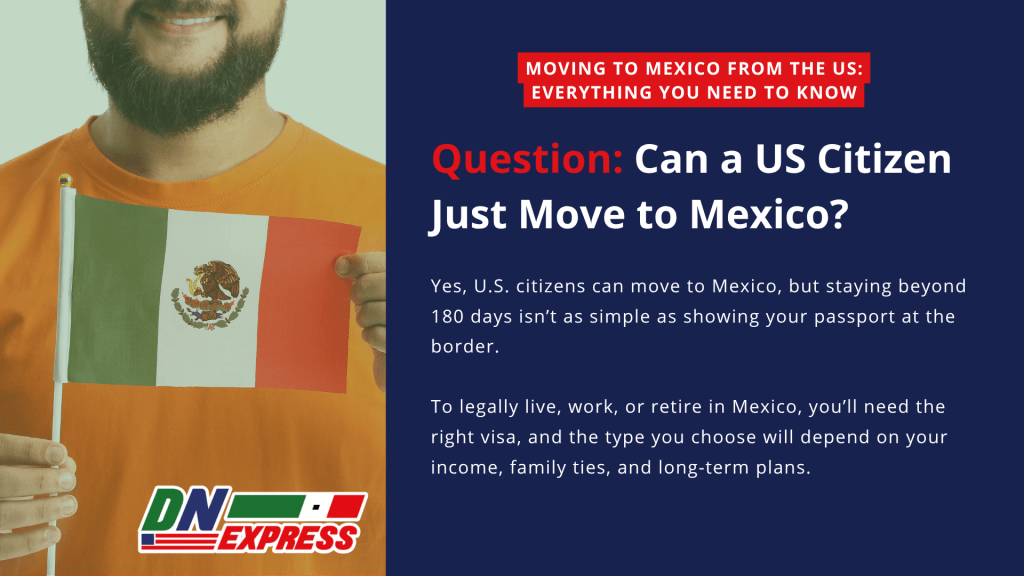
Who Is Moving to Mexico? Why It Matters for Your Path
Moving to Mexico isn’t a one-size-fits-all journey.
Your citizenship status, family ties, and long-term goals will shape which legal path is available, and how easy or complex the process will be.
Identifying which group you belong to is the first step to a smooth transition.
-
U.S.-Born Children of Mexican Parents
If one or both of your parents were born in Mexico, you likely have an automatic right to Mexican nationality.
This means you can claim dual citizenship without fulfilling residency requirements or passing language or history exams.
For many, this path restores access to their cultural roots and simplifies property ownership and inheritance in Mexico.
-
Mexican-Americans Reconnecting with Heritage
Adults born in the U.S. to Mexican parents or grandparents often choose to restore their nationality to strengthen family ties, invest in property, or gain easier travel between both countries.
This group may face additional steps like locating old birth records or correcting document errors, but the rewards, dual citizenship and legal recognition in Mexico, are worth it.
-
Parents Applying for U.S.-Born Kids
For Mexican parents living in the U.S., registering their children as Mexican citizens offers critical long-term benefits: access to education, healthcare, and the right to inherit property in Mexico.
Parents often pursue this path to secure their kids’ future and keep family ties strong across borders.
-
Spouses of Mexican Citizens
Foreign spouses can apply for Mexican residency and, after two years of marriage and living in Mexico, pursue citizenship.
This streamlined pathway recognizes family unity as a priority, though it still requires meeting documentation and financial requirements.
-
Retirees & Expats
For U.S. citizens without Mexican lineage, residency and naturalization are the main options.
Temporary residency allows stays of up to four years, while permanent residency removes the need for renewal.
After five years of living in Mexico, expats may apply for citizenship and enjoy full rights as Mexican nationals.
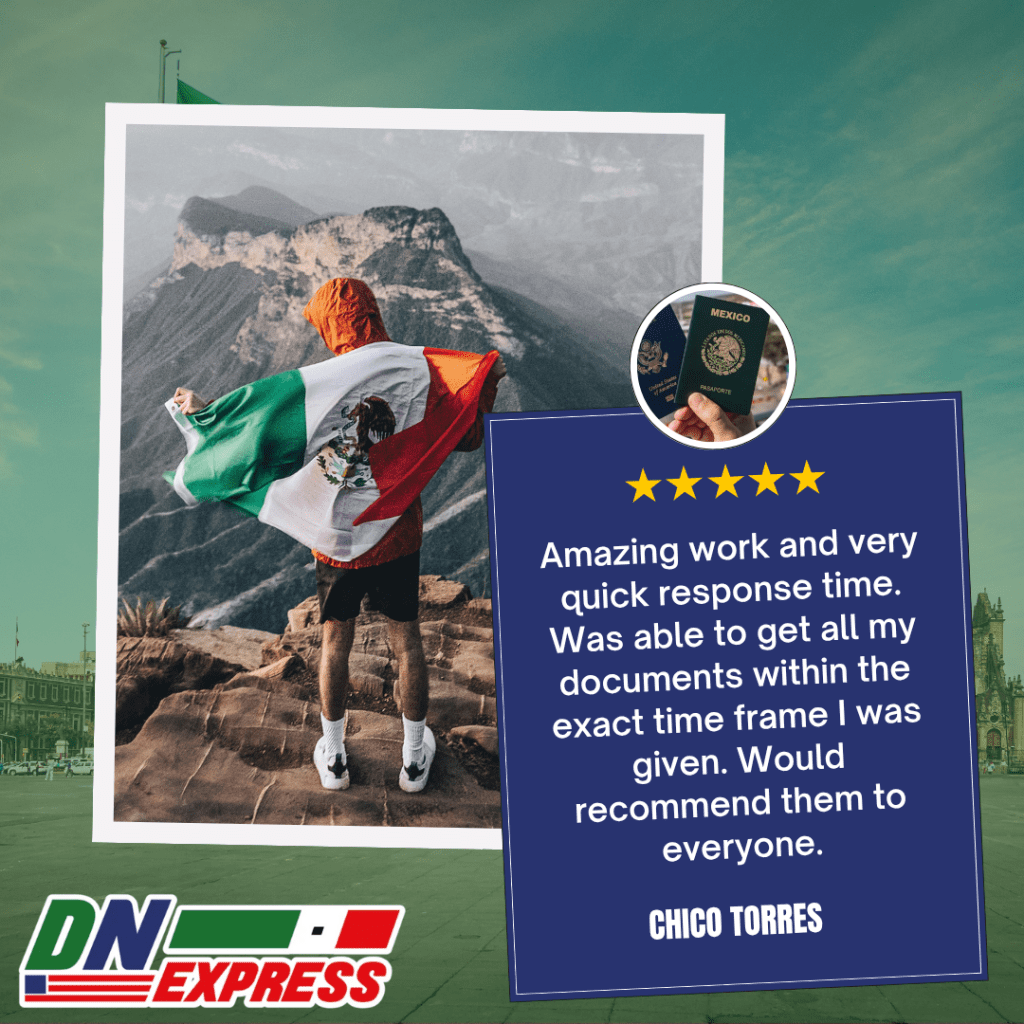
Can a US Citizen Just Move to Mexico?
Yes, U.S. citizens can move to Mexico, but staying beyond 180 days isn’t as simple as showing your passport at the border.
To legally live, work, or retire in Mexico, you’ll need the right visa, and the type you choose will depend on your income, family ties, and long-term plans.
Visa Options: Temporary or Permanent Residency
- Temporary Resident Visa: Allows you to live in Mexico for up to 4 years. Ideal for digital nomads, retirees, or anyone testing the waters before committing long-term. Requires proof of monthly income (around $4,000 USD) or savings (about $68,000 USD).
- Permanent Resident Visa: Perfect for retirees or those with close family ties to Mexico. Once approved, there’s no need to renew, this is your path to full-time life in Mexico.
Why the Tourist Visa Isn’t Enough
Many newcomers ask, “Can I just stay on a 180-day tourist visa and do border runs?”
Not anymore. Mexico’s immigration officials are cracking down on “perpetual tourists” who leave and re-enter every six months. Some travelers are now being granted stays of only 30 or 60 days, or denied entry altogether.
One DNExpress client thought her tourist visa would suffice while applying for dual citizenship. But after her stay was unexpectedly cut to 30 days, she risked overstaying and incurring fines.
With our help, she secured a temporary residency, avoiding costly penalties and stress.
Cost of Living in Mexico: Can You Live on $2,000/Month?
Yes, you can live comfortably in Mexico on $2,000 a month. For many Americans, this budget covers rent, food, utilities, transportation, and even small luxuries like dining out or hiring household help.
Why Mexico’s Cost of Living Is So Attractive
Cities like Mérida, Querétaro, and Guadalajara are 50–60% cheaper than U.S. metropolitan areas. For example:
- A one-bedroom apartment in Mérida’s historic center rents for $500–$700/month.
- Utilities average $50–$100/month, depending on air conditioning use.
- Groceries for two adults often run $250–$350/month.
Even in larger cities like Mexico City, careful planning can make $2,000/month a very realistic budget.
Retiree Insights: A Higher Standard of Living
Many retirees report enjoying a lifestyle that was unaffordable back home. On Reddit and client calls, we hear stories of expats hiring housekeepers, gardeners, or even part-time caregivers, all for a fraction of U.S. costs.
Things That Can Raise Your Budget
- Imported goods and specialty foods can cost more.
- Private healthcare, while affordable compared to U.S. prices, is still an added expense.
- Some expats underestimate the need for a reliable car in less urban areas.
Pro Tip
Your cost of living depends heavily on location. Coastal resort towns like Playa del Carmen may have inflated prices compared to inland colonial cities.
How to Get Legal Residency or Citizenship
We help you recognize that moving to Mexico long-term means grasping the difference between residency and citizenship, and choosing the right path for your situation.
-
Visa Types for Americans
Temporary Residency
This visa is ideal for digital nomads, retirees, and anyone planning to live in Mexico for 6 months to 4 years. To qualify, you’ll need to show either:
- Monthly income: $4,000 USD for the past 6 months.
- Savings: At least $68,000 USD maintained over 12 months.
It allows you to open a bank account, rent property, and even work if you secure a work permit.
Permanent Residency
Perfect for retirees or those with close family ties to Mexico. This visa grants indefinite stay, no renewal required. It’s also the first step for U.S. citizens who eventually want Mexican citizenship.
- Citizenship Pathways

- Through Marriage: If you’re married to a Mexican citizen, you can apply for citizenship after 2 years of residency in Mexico.
- Through Naturalization: For everyone else, five years of continuous residence is required. Applicants must also pass a Spanish language and cultural knowledge test.
If you’re U.S.-born with Mexican parents, you don’t have to live in Mexico or visit a consulate to claim your Mexican nationality. Our team specializes in helping clients reclaim their citizenship remotely, even in cases where documentation is missing or government offices previously denied their applications.
Do You Lose US Citizenship or Social Security?
One of the most frequent questions we hear from clients is, “If I move to Mexico or get dual citizenship, will I lose my U.S. benefits?”
The good news is:
-
You Don’t Lose U.S. Citizenship
Becoming a Mexican citizen doesn’t mean giving up your U.S. passport. Both the United States and Mexico allow dual citizenship, so you can legally hold two passports and enjoy the rights of both countries.
-
Social Security Is Safe
Your U.S. Social Security benefits will continue to be paid even if you live abroad. Mexico does not tax these payments, and you can receive them directly into a Mexican bank account or through international banking services.
The Expat Lifestyle: Realities & Challenges
Life in Mexico offers incredible opportunities, vibrant culture, lower costs, and a slower pace, but it’s not without its adjustments. Here’s what Americans should know before making the move.
Internet for Remote Workers
Mexico’s major cities like Mexico City, Guadalajara, and Mérida now offer reliable fiber-optic internet in many neighborhoods. But connection quality varies, especially in smaller towns. Before signing a lease, test speeds or ask locals to ensure your work-from-home setup won’t suffer interruptions.
Safety Concerns
While Mexico is home to some of the safest cities in Latin America, safety still depends on where you settle and how you travel.
- Drive only during daylight hours and stick to toll roads (cuotas), which are better maintained and more secure.
- Many expats find comfort joining local networks for advice on neighborhoods, schools, and daily life.
Renting vs. Buying Property
Foreigners can buy property in Mexico, but many experienced expats recommend renting first.
- Why Rent First? It gives you time to learn about the area, avoid loud or poorly maintained neighborhoods, and navigate cultural differences like relaxed noise ordinances.
- If you do decide to buy, work with an independent attorney and understand the fideicomiso (bank trust) required for properties in coastal and border zones.
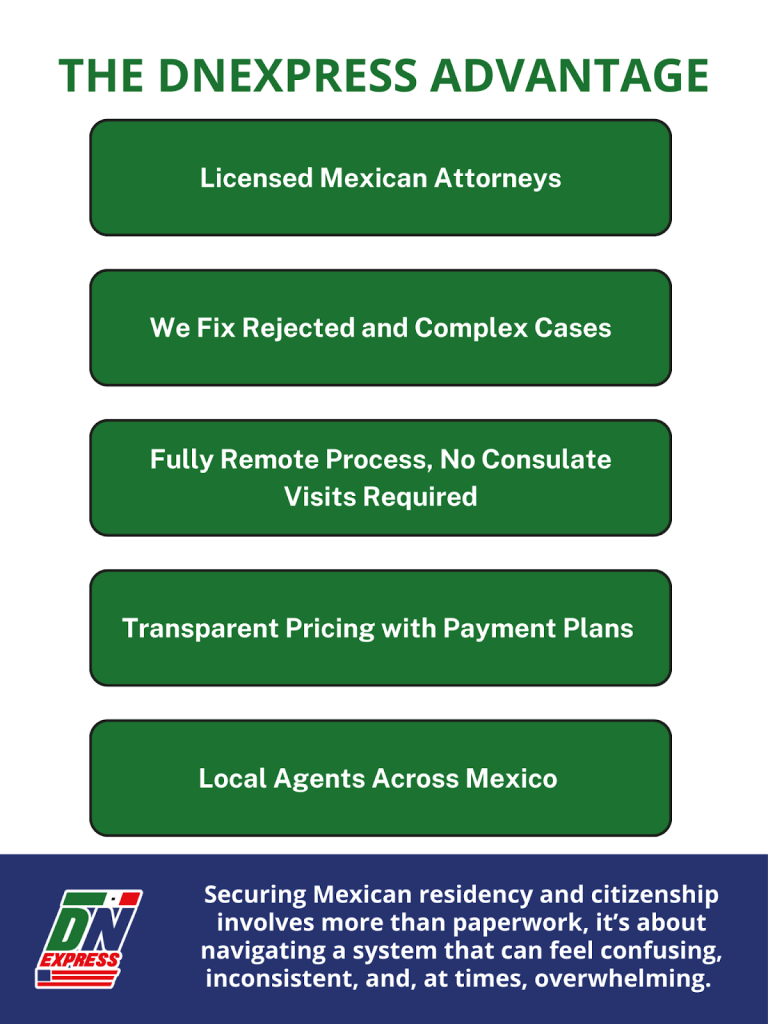
Why Work With Doble Nacionalidad Express?
When it comes to reclaiming your Mexican nationality or navigating residency, the process can feel overwhelming, especially if you’ve already faced rejections or confusing requirements.
That’s where we come in.
We’re licensed Mexican attorneys who specialize in making the impossible possible for U.S.-born Mexicans and their families.
Why Choose Us?
🏛️ Legal Expertise You Can Trust
Your case is handled by professional attorneys familiar with Mexican and U.S. law, not third-party agencies or automated services.
📱 No Consulate Visits
We complete the entire process remotely. No more waiting months for consulate appointments or traveling across states to deliver paperwork.
💸 Affordable & Transparent Pricing
We believe every family deserves access to their heritage. That’s why we offer clear, fixed pricing and payment plans, no hidden fees, no surprises.
📂 Experts in Difficult Cases
We’ve helped thousands of clients overcome rejected applications, missing documents, and government errors. Even if you’ve been told “no” before, we’re ready to fight for your “yes.”
Downsides of DIY
Trying to navigate Mexico’s bureaucracy alone often leads to:
- Missed deadlines and costly mistakes due to unclear processes.
- Language barriers that result in incomplete applications.
- Rejection from Mexican authorities for small errors or missing documents.
We take the stress out of the equation, guiding you every step of the way until your citizenship, residency, or passport is in hand.
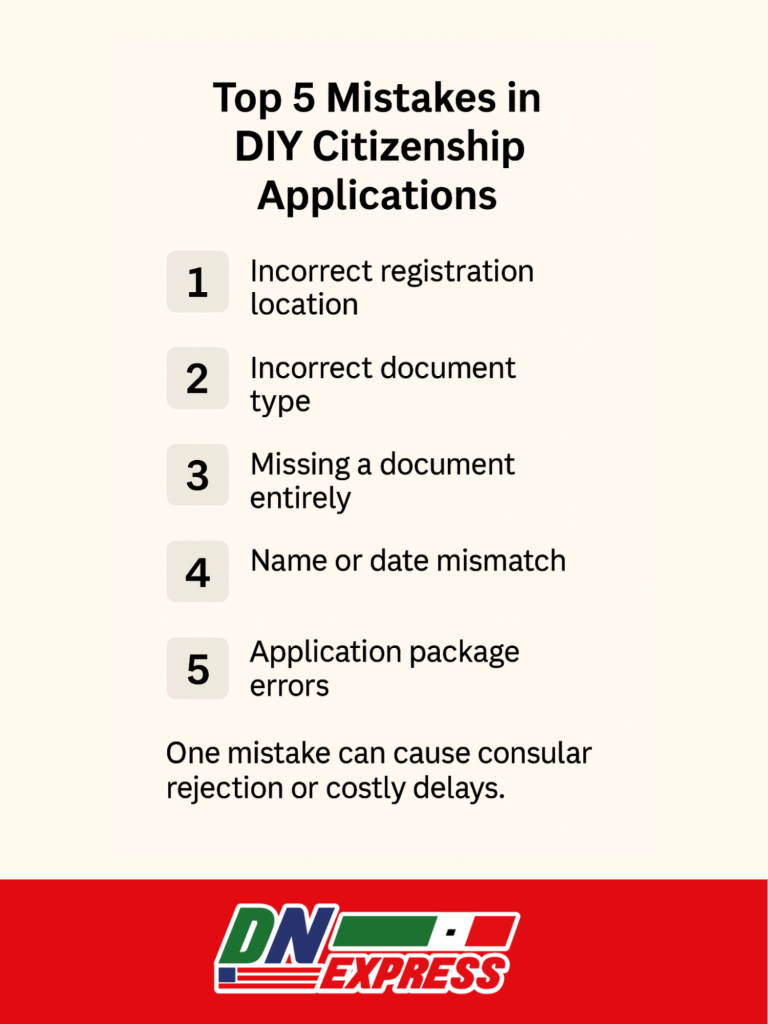
Your Path to Mexico Starts Here
Whether you’re reclaiming your Mexican nationality, securing citizenship for your children, or applying for a residency visa, we are here to make the process simple, fast, and stress-free.
We know how overwhelming it feels to face government red tape or wonder if it’s “too late” to claim your rights.
But with our legal expertise and compassionate support, we’ve helped thousands of families turn “no” into “yes”, without setting foot in a consulate.
- Reconnect with your heritage.
- Protect your family’s future.
- Start your new chapter in Mexico with confidence.
Schedule a Free Case Review or Message Us on WhatsApp to speak with a bilingual advisor who understands your journey.
FAQ About Moving to Mexico
Can a U.S. citizen live permanently in Mexico?
Yes. U.S. citizens can apply for temporary or permanent residency. After five years of residency (or two years if married to a Mexican citizen), you may qualify for Mexican citizenship.
Can I live comfortably in Mexico on $2,000 a month?
Absolutely. Many expats enjoy a high quality of life on $2,000/month, especially in cities like Mérida or Querétaro where costs are 50–60% lower than in the U.S.
Is Mexico safe for U.S. citizens?
Safety varies by region. Cities like Mérida and San Miguel de Allende are considered very safe. Avoid driving at night and stick to toll roads for added security.
Do I lose my U.S. citizenship if I become a Mexican citizen?
No. The U.S. and Mexico both allow dual citizenship. You can hold passports from both countries and enjoy the rights of each.
Will I still receive my U.S. Social Security in Mexico?
Yes. Your Social Security benefits continue abroad, and Mexico does not tax them. You can even deposit them directly into a Mexican bank account.
Can I buy property in Mexico as a U.S. citizen?
Yes, but buying near the coast or borders requires a fideicomiso (bank trust). Many expats recommend renting first to get to know the area.
Do I need to speak Spanish to move to Mexico?
Not necessarily, but learning Spanish greatly improves your experience and helps with everyday tasks. We can handle your legal process even if you’re not fluent.
Can I avoid going to a consulate for dual citizenship?
Yes. We specialize in helping clients complete the entire process remotely, no consulate visits required.
